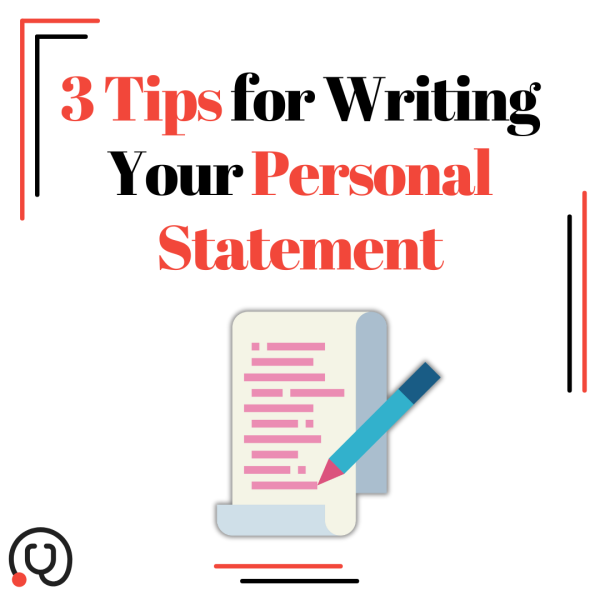3 Top Tips for Creating Your Personal Statement

2 weeks ago by Stan
Writing your personal statement can be daunting. It is challenging to craft an original and personal document which effectively communicates your experiences and achievements.
This year UCAS has changed the format of the personal statement from a free-flowing text to three distinct questions:
- Why do you want to study this course or subject?
- How have your qualifications and studies helped you prepare for this course or subject?
- What else have you done to prepare outside of education, and why are these experiences useful?
These questions may well mirror what you would have covered anyway, but the additional guidance could help you structure your statement that bit more effectively.
The total word count of 4000 characters remains unchanged. Each question has a minimum requirement of 350 characters.
As there are several parts of a medical school application, the personal statement carries less weight than it would otherwise. In fact, most universities will not read personal statements or make interview invitations based on its content. However, at some universities, personal statements are considered so it is still worth writing the best personal statement possible. Keeping the following tips in mind will save you from the stress of several drafts and rewrites.
Top Tip #1: Be intentional and reflect on everything
It’s common for aspiring medics to have a long list of clinical/voluntary experiences, leadership positions, academic achievements, extracurricular ventures and external reading. Medicine is extremely competitive and accumulating such experiences is often regarded as a vessel for bettering your chances of securing that coveted place at medical school. After having put in all that time and effort, it’s tempting to want to include everything on that list. However, doing so might result in unintentionally presenting yourself as someone who views your experiences as just that: something to list.
Limited by 4000 characters, it is important to be intentional with every single word and point you convey. You need to demonstrate that you have a realistic view of the profession, good insight into what being a doctor entails and that you have the soft skills/aptitude for medicine and the duties that come with it. By appropriately reflecting on your experiences, you can fulfil all three, efficiently and concisely.
Some skills valued by the medical profession which you can discuss include:
- Professionalism
- Communication skills
- Leadership
- Ability to work in a team
- Conscientiousness
- Organisational skills
- Ability to problem solve
If an experience did not lead to personal growth or help to further develop your motivation to study medicine, it’s worth leaving it out in order to focus more on the activities that did.
Top Tip #2: It needs to read well
After you’ve decided what to say in your personal statement, you need to work out how to communicate it effectively. Selection committees receive thousands of applications and eloquence will help you to stand out. It is important to proofread your work so that it is free from spelling or grammatical mistakes.
A suggestion here would be to read your personal statement out loud. If you have to read a sentence twice to understand its intended message, consider rewording it or even splitting the point(s) into two sentences for clarity. The last thing you want is to confuse your reader! This leads into our final tip – to get a second opinion.
Top Tip #3: Get a second opinion
It’s wise to accept that sometimes, what makes sense to you might not make sense to someone else. It is easy for ideas to get lost in context and for messages to come across differently from their original intention. From the point of view of the writer of such ideas and messages, it’s not always easy to notice when this happens.
Even when reading your personal statement back, your prior understanding of what is being said can cloud your judgment. Therefore, having a fresh pair of eyes can be extremely beneficial.
Speaking to healthcare professionals may give you further insight on how to word things, but don’t worry if you don’t know anyone with a medical background – in fact, there could even be benefits to having a lay person read it as they would pick up on any jargon. Teachers at your school will probably be more than willing to help if you ask, and family and friends are an option. If you know someone applying for the same course you are, it’s worth asking them to have a look as they’ll have the same kind of insight you do; you could even offer to help them with the same!
MedEntry UK also offers a Personal Statement Checking Service. You can submit your personal statement for review to gain feedback from expert application reviewers, who will check your statement and make detailed suggestions.
Updated by Laura Snell


